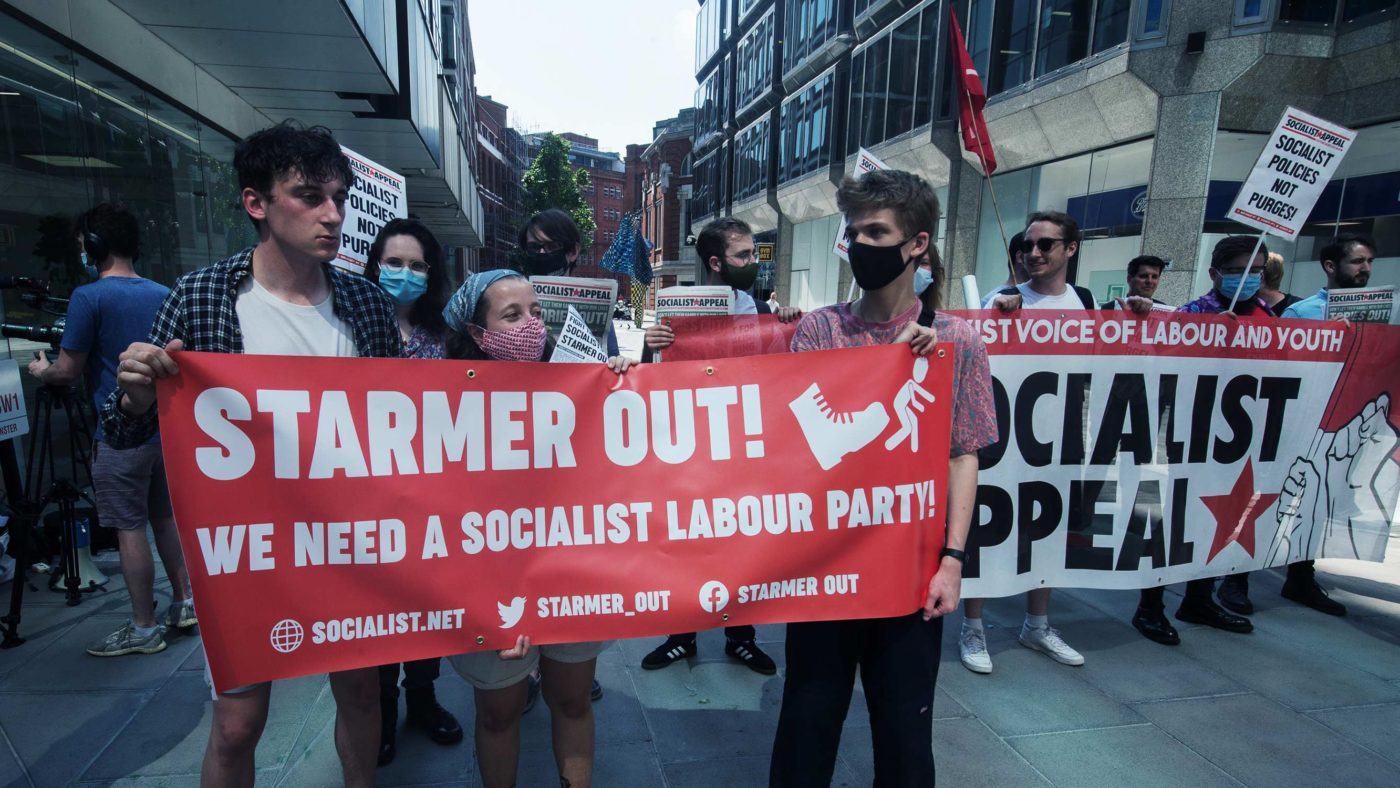As Labour’s national executive committee met yesterday, a motley crew of discontents paraded outside. They included Piers Corbyn, the prominent conspiracy theorist and Covid denialist, and a handful of people who either have already been expelled from the party or sympathise with far-left organisations that the NEC has now proscribed. Pleasingly, the protesters vigorously fell out among themselves.
These people may appear comical, but they aren’t funny. Barring them from Labour membership is not only right but important. Labour is not currently in a good state, for it is organisationally and financially weak, and is struggling in the polls. But in good times and bad, mainstream parties have a civic obligation to protect themselves from infiltration by forces that reject constitutionalism. Labour yesterday discharged that duty, to the benefit of its own reputation as well as the body politic.
The constitutional principle is this. To avoid mob rule, a free society needs intermediate institutions. This is the great insight of James Madison in his argument, in The Federalist Papers, for representative democracy. “A pure democracy,” he wrote, “by which I mean a society consisting of a small number of citizens, who assemble and administer the government in person, can admit of no cure for the mischiefs of faction.”
But this model of government breaks down when the mediating institutions themselves are seized by factions. In the age of universal suffrage, Britain has relied on cohesive political parties which compete for public office. At various times, Labour has been vulnerable to the incursions of what are known as “entrist” groups on the far left. The distinguishing feature of these organisations compared with other revolutionary groups is not ideological but tactical: they believe they can advance their aims better by being parasitic on the Labour Party. Again and again, the party has had the problem of being taken over at local level in some constituencies by militant groups. The only legitimate recourse is to expel and proscribe them.
The groups that Labour has now barred are Labour Against the Witch Hunt, Socialist Appeal, Labour in Exile, and Resist. It is unlikely that anyone outside the party has ever heard of them, and it would test the patience of any normal reader to delineate their organisational history. It is sufficient to say that their values are not those of the Labour Party. Socialist Appeal is a remnant organisation from what was once known as the Militant tendency, which in the 1980s controlled Liverpool City Council and set an illegal budget. Its ideological fealty is not to Labour’s traditions but to those of Marx, Lenin and Trotsky.
Now, it is possible to be a Marxist and to subscribe to democratic politics. I don’t myself think it’s a coherent position, because of Marx’s aspiration for a world without division. As the philosopher Leszek Kolakowski remarked in his seminal essay The Myth of Human Self-Identity: “The dream of perfect unity may come true only in the form of a caricature … as an artificial unity imposed by coercion from above.” But I have known Marxists (and have counted two eminent Marxist theorists, Paul Hirst and Norman Geras, among my friends) whose political views are not far removed from my own decidedly non-Marxist liberalism.
But this philosophical debate is quite different from the practical question of whether declared followers of Lenin and Trotsky are part of Labour’s milieu. Of course they aren’t, and can’t be. By definition, their model of politics is to supplant parliamentary democracy and replace it with the revolutionary party. Whereas the Labour Party defends liberal political rights and civil liberties, the revolutionary left upholds Lenin’s model (set out in The State and Revolution) of “the necessary suppression of the exploiters”, who must be “crushed by force”. Labour has not only the right but the moral responsibility to British democracy to remove all such people from its ranks. The issue of anti-Semitism is linked to this question, for there is a strong historical association of the far left with anti-Semitic ideas, but it is not the main issue. The overwhelming reason for the proscriptions that Labour has imposed is that democrats cannot co-exist with anti-democrats.
Labour has been through these episodes before. To its immense historical credit, the postwar government of Clement Attlee swiftly recognised the threat to Western democracies from an expansionist Soviet Union and was instrumental in forming the Nato alliance, on which Britain’s national security rests to this day. But the communist threat, which was real and pressing, was not only external. Communism had its domestic agents, sympathisers and fellow travellers too, and Labour peremptorily set about removing such people from its own ranks, including the parliamentary party.
In 1948, on the eve of elections in Italy, a group of Labour MPs signed a telegram of support to Pietro Nenni, leader of those Italian socialists who were formally cooperating with the Communist Party. As Tribune, under the editorship of Michael Foot, rightly declared, “those who organised this manoeuvre … were engaged in an act of sabotage”, and they were expelled from the Labour Party. The principal name among them was John Platts-Mills MP, who on his death in 2001 received an obsequious obituary in The Guardian that even so could not disguise the fact that “he seemed to visit and support every Warsaw Pact country”.
Labour has many flaws and failings, historical and current, but it is a democratic party that has done important and sometimes noble things in government. It is, by its nature, hostile to communism, Leninism and Trotskyism. All who subscribe to democratic politics, of left, right or centre, should be glad it has reasserted that position under Keir Starmer.
Click here to subscribe to our daily briefing – the best pieces from CapX and across the web.
CapX depends on the generosity of its readers. If you value what we do, please consider making a donation.


